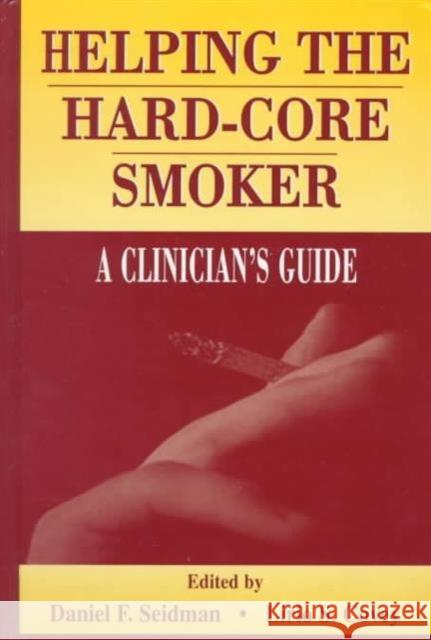Helping the Hard-core Smoker : A Clinician's Guide » książka
Helping the Hard-core Smoker : A Clinician's Guide
ISBN-13: 9780805827552 / Angielski / Twarda / 1999 / 336 str.
Since the health hazards of cigarette smoking became widely publicized in a series of reports by the Surgeon General in 1964, public attitudes toward smoking have grown more negative and the majority of smokers have tried to stop smoking. As the prevalence of smoking in the United States has gone from 40% in 1965 to recent estimates of about 25% of the adult population, those smokers who continue to smoke tend to be the hard core. These are smokers who have made numerous attempts to stop smoking but have failed.
This book constitutes a major new resource for professionals working with hard core smokers and their families. It is designed as a practical, clinically useful and up-to-date guide for all those in a position to intervene: mental health professionals, physicians, dentists, nurses, pharmacists and other health care professionals, clergy, human resource and employee assistance program corporate staff, and teachers and guidance counselors.
New research suggests that difficult-to-treat smokers often have emotional problems adjusting to stopping smoking. Some also have psychiatric diagnoses or abuse other substances. These are factors which interfere with their efforts to quit.
Because these difficulties have been poorly understood, hard-core smokers have not been provided with adequate resources and skills to overcome their addiction. These smokers are in need of increasingly comprehensive assessment and treatment.
Despite massive public health education about the dangers of cigarette smoking, rates of smoking among the population are no longer declining in the United States and the success rates of clinical programs for smokers remain low. Helping the Hard-Core Smoker seeks to explain why current approaches are often inadequate and how best to help today's highly nicotine-dependent smokers who are struggling with their addiction quit.











